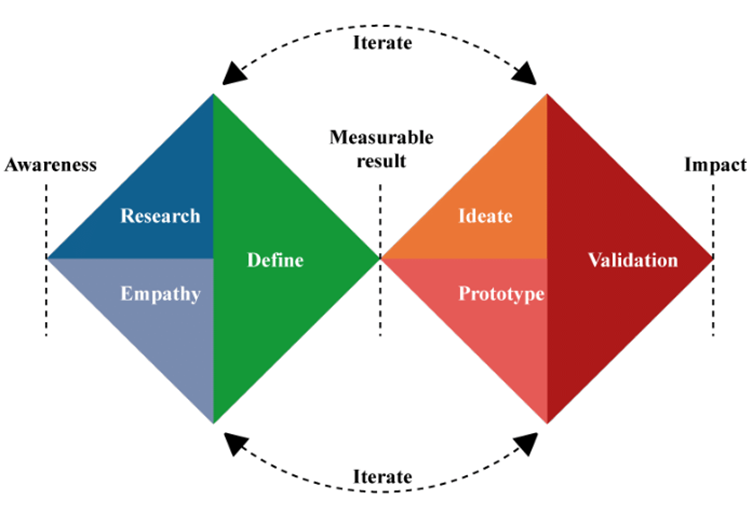The challenge
The Middellandstraat is a shopping street in Rotterdam that is characterized by a diverse mixture of shops ranging from low market end bakeries, groceries, hairdressing saloons and small restaurants to a bit more up market lunch rooms, furniture and design shops. Shops and restaurants are run by entrepreneurs from various backgrounds, which translates in specialized shops and restaurants for, for instance, Surinam, Mediterranean, Turkish and African products and food.
Whereas in many neighborhoods this diversity is a major asset in attracting customers, this is not yet the case for the Middellandstraat. The Middellandstraat itself is situated in a lower income area, surrounded though by high income neighborhoods. There is little interaction between these areas in terms of attracting customers. In addition, the attractiveness of the Middellandstraat suffered from lingering security problems, and in some cases from lack of maintenance of buildings and shops. Although conditions in the Middellandstraat are improving, its potential as a vibrant, attractive shopping street is not yet fully exploited.
Revitalize the Middelland Shopping Street
This challenge is a part of a project with the aim to improve the situation in the Middellandstraat and we are searching for innovations that can help to revitalize the shopping street. Most business models are outdated and do not respond anymore to today’s consumers demand. There is little use of modern technology. Improvements remain limited to window redressing, trainings and meetings. Structural changes do not really take place. Most entrepreneurs and shop owners also do not have the means to invest in solutions that could help them to propel their business further. They face the same problems as Albert Heijn, Bijenkorf and other retail chains, but they lack the money to address their problems adequately.
Field Work Day
Which actions should be undertaken? What should shops owners and entrepreneurs do to revitalize the neighborhood economy? This is the central question that students from the minor Frugal Innovation for Sustainable Global Development will address during a one day in-field workshop. They will work in groups of 5 with he aim to arrive at a portfolio of ideas that could contribute to revitalizing the shopping street. The ideas and solutions need to be guided by the idea of frugality: they should be profitable/affordable to both the entrepreneur and the customer, if technologies are involved they should be functional and easy to implement, the ideas and innovations should fit into the context, build upon what is already in place, and co-creation should be key. They will be asked to exemplify their ideas by applying these to the Restaurant Mosaic, a restaurant in the Middellandstraat that wants to promote itself as a restaurant of the future.
The workshop participants will focus on the following elements:
- Is the idea or solution affordable to local entrepreneurs, shop owners (and customers)?
- Does it make use of frugal innovations?
- Is the idea or solution realistic given the context in which it has to be implemented (context sensitivity)?
- Is the business model such that it can contribute to the wider goal of revitalizing the neighborhood?
- Does the idea or solution allow entrepreneurs and shop owners to implement the proposed ideas or solutions themselves?

